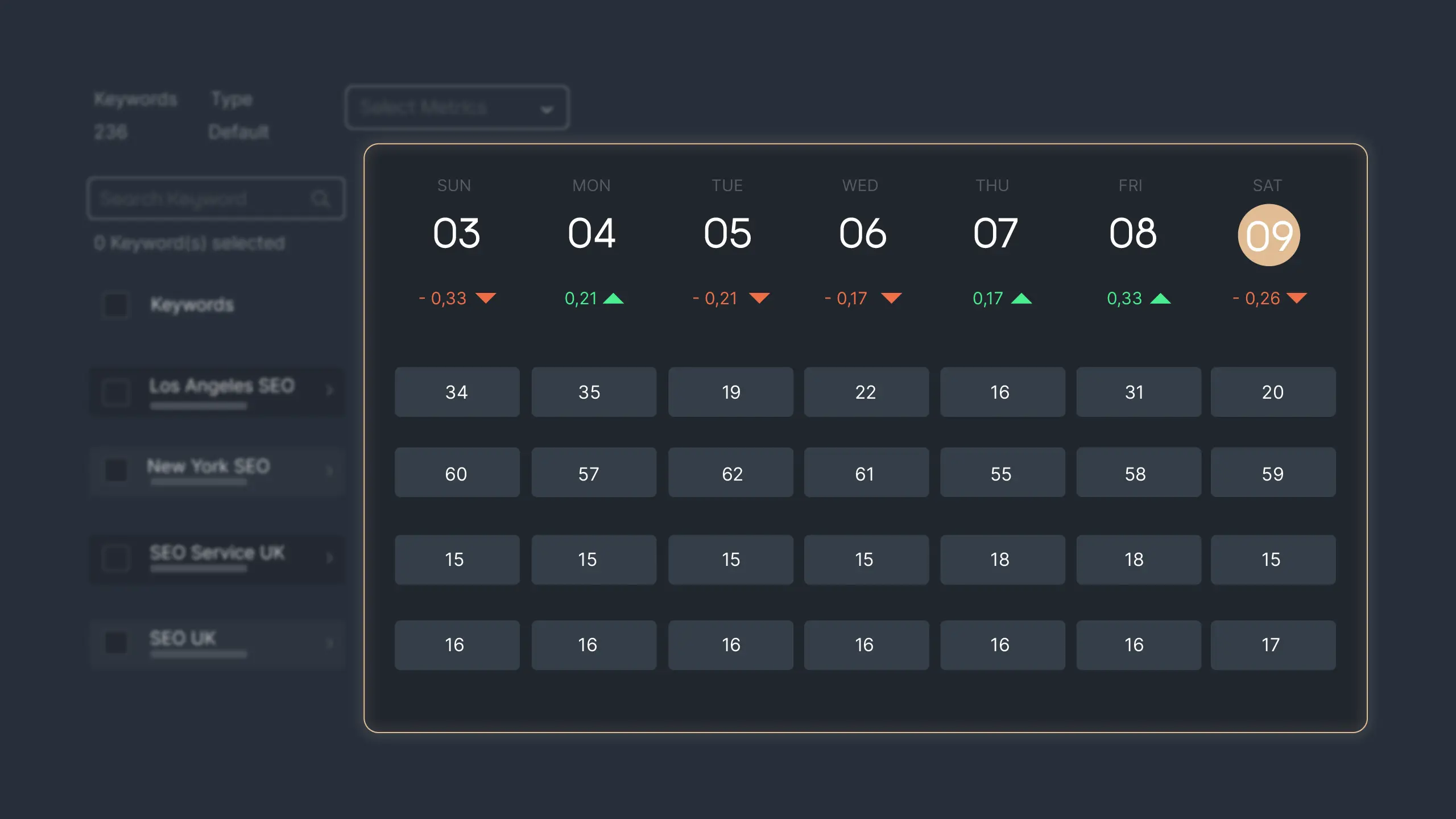Google ranking factors are the criteria used by Google to determine how it should rank in search engine results pages (SERPs). These factors influence the visibility of a website and its ability to attract organic traffic from search engines.
As the competition becomes increasingly intense, it's more important than ever for businesses to understand Google's ranking factors. This understanding can help businesses to create a comprehensive SEO strategy that leverages their strengths, addresses their weaknesses, and capitalizes on the opportunities for growth and improvement.
In this article, we'll explore the top 10 ranking factors that are expected to play a significant role in boosting SEO success in 2023. These ranking factors include
1. High-Quality Content
One of the most important Google ranking factors in search engine optimization (SEO) is the quality and relevance of the content on a website. Content is the foundation of a website, and it is essential for attracting and engaging users.
Did you ever heard about Content is King? That is because content can be the tool that assures your SEO success. There are many types of content you can create to enrich your website. Thus, you can capture more Google attention.
Search engines use algorithms to evaluate the content of a website to determine its relevance and authority. High-quality content that is well-written, relevant, and up-to-date will rank higher in SERP than low-quality or outdated content.
Here are some best practices to create high-quality content:
Do precise keyword research
Write original content only
Regularly update the existing content
Use SEO rules in content writing
2. Mobile-first Website
With the growing number of mobile internet users, it is crucial for website owners to ensure that their sites are mobile-friendly. Mobile optimization not only improves the user experience for those accessing your site using mobile devices, but it also has a significant impact on your ranking.
Google and other search engine persist to satisfy their users on all devices, thus they have a specific algorithm that is used to seek mobile-friendly sites. So, if your site keeps mobile users in mind, then it will be easier to rank higher.
To make your website mobile-friendly, there are several best practices that you can follow. Here are they:
Ensure that your site is responsive and adjusts to different screen sizes.
Optimize the size and load time of images, videos, and other media files to improve page load speed on mobile devices.
Improve navigation by making buttons and links easy to click on with a finger.
Lastly, use mobile-friendly technologies such as Accelerated Mobile Pages (AMP) to further improve the mobile user experience.

Picture 1: Illustration of a mobile-friendly website
3. High-Quality Backlinks
One of the most important factors in search engine ranking is the quantity and quality of backlinks pointing to your website.
Backlinks are essentially links from other websites that direct users to your site. The more high-quality backlinks you have, the higher your website rank in SERP
To build high-quality backlinks, you need to focus on creating valuable content that other websites will want to link to. This includes writing blog posts, articles, and other types of content that people will want to share and link to.
Additionally, you can reach out to other websites and ask for a link to your site. When reaching out to other sites, it's important to make sure that the sites are relevant to your own and that they have high domain authority.
You can use professional backlink services to boost your site authority. They will recommend reputable sites to give quality backlinks.
4. Site Navigation and Architecture
A website’s structure and navigation system are vital in determining the ranking. The way a website is organized and how easily its content can be accessed by both users and search engines can have a significant impact on its visibility.
A well-structured website with a clear and intuitive navigation system can help search engines understand the relevance and importance of each page. So, it will be much easier to crawl and index.
To improve the site architecture and navigation, it is important to have a clear structure for organizing pages and categories.
This can include using clear and descriptive URLs, creating a hierarchy of pages, and using breadcrumb navigation to help users easily find their way around the site. Not only that, it is important to ensure that all pages are accessible from the navigation and that links to important pages are easy to find.
To create a clear and intuitive navigation system, it is important to consider the following tips:
Use clear and descriptive labels for navigation items
Group related pages together under a common heading
Place the navigation in a consistent location on every page
Limit the number of main navigation items to keep the menu manageable
Provide a search bar for users who are looking for specific content
5. Keyword Usage
The next Google ranking factor is keyword usage. Keywords are terms and phrases that describe the content on your website and help search engines understand what your site is about. Using the most relevant keywords to your site will help it upscale its ranking.
It's important to do thorough research to find the most relevant ones for your audience and most likely to drive traffic to your site. This involves understanding the search habits and intent of your target audience, then analyzing the competition. The research can be from competitive analysis with your competitor. This way, you can beat the #1 SERP.
Once you have a solid understanding of your keywords, you can start incorporating them into your content, meta tags, and URLs. This means using relevant keywords in your meta tags, creating compelling and descriptive titles, and writing engaging meta descriptions that encourage clicks.
6. Domain Authority
Domain authority, also known as DA, is a measure of a website's credibility and trustworthiness. Google uses it as a ranking factor in determining which websites to show in the search results. The higher the domain authority, the more likely a website is to rank well for relevant keywords.
Best Practices to Increase Domain Authority
Publish high-quality content regularly.
Build a strong backlink profile with links from reputable websites.
Focus on website usability and user experience.
Avoid black hat SEO tactics, such as keyword stuffing or link buying.
Regularly monitor and improve website security.
What Not to Do in Increasing Domain Authority
Don't engage in unethical link-building practices, such as buying or selling links.
Don't ignore the importance of website security.
Don't compromise on the quality of content to level up backlinks.
7. Niche Expertiseness
Google values websites that are experts in their respective fields. By demonstrating a deep understanding of your niche, your website can establish itself as a trustworthy and authoritative source. This can help improve your search engine ranking and attract more visitors to your site.
Do these strategies to establish more expertise in your niche:
Conduct research on your industry and stay up-to-date with the latest trends.
Share your knowledge and expertise through blog posts, case studies, and other types of content.
Join a community of experts in your niche through online forums, social media groups, and other channels.
Collaborate with other experts in your field to create high-quality, informative content.
By following these best practices, you can establish your website as a respected authority in your niche and get the benefits of a higher ranking.
Keyword Ranking Tracker
To see whether your targeted keywords have reached a high ranking, you need to check their daily ranking data. You can use Sequence Stats Keyword Ranking Tracker to automate this task. This tool provides real-time daily ranking data to observe.

Picture 2: Daily ranking data changes in Sequence Stats
You can observe your keywords by grouping them into Views. This way, you can analyze the keywords that belong in one group separately from the whole keyword list you have. In each View, you can get valuable insight such as the market share, total demand, and competitors.

Picture 3: Views in Sequence Stats
Conclusion
All in all, understanding and implementing the top Google ranking factors is crucial for the success of your SEO efforts. It is important to keep in mind that these ranking factors are constantly evolving and it is important to stay up-to-date with the latest best practices to ensure your website remains competitive in the search results.
With the help of an effective SEO tool, your plan in getting to the top of SERP will be much lighter. Thus, find yourself a tool that can do multiple things in your SEO projects. Investing in Sequence Stats can be a wise choice, as it will automate your SEO task.
Register now and enjoy the free trial plus free balance for you!